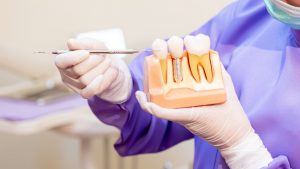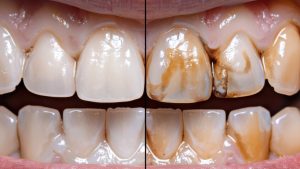Having your blood pressure checked at the dentist might seem strange, but this simple test plays a vital role in your dental care and overall health.
Safety with Anesthesia
Your blood pressure reading helps dentists ensure your safety during dental procedures. When dentists use local anesthesia (numbing medications) to perform dental work, these medications often contain a substance called epinephrine. Epinephrine helps the numbing effect last longer, but it can also temporarily raise blood pressure. If a patient already has high blood pressure, this combination could potentially cause problems.
Managing Dental Anxiety
Dental appointments can make many people nervous or anxious. This “dental anxiety” can cause blood pressure to spike. By taking blood pressure readings, dentists can determine whether high readings are just temporary due to nerves or if they might indicate an underlying health issue that needs attention.
Early Detection of Health Issues
Many people visit their dentist more regularly than their primary care doctor. This puts dentists in a unique position to spot potential health problems early. When dentists find unexpectedly high blood pressure readings, they can refer patients to their doctors for proper medical care. This simple screening has helped many people discover and address high blood pressure before it caused serious problems.
Treatment Planning and Safety
Before performing any dental procedures, dentists need to ensure it’s safe to proceed. If a patient’s blood pressure is too high, the dentist might need to postpone non-emergency procedures until the patient’s blood pressure is under better control. This is especially important for longer procedures or those requiring certain types of anesthesia.
A Part of Modern Dental Care
This quick blood pressure check only takes a minute but plays a crucial role in protecting patient safety. It’s part of the comprehensive care approach that modern dentistry takes, considering not just your oral health but how it connects to your overall well-being.
So the next time your dentist wraps that blood pressure cuff around your arm, you’ll know it’s an important safety step that helps ensure you receive the safest possible dental care.
Conclusion
The practice of taking blood pressure at dental appointments reflects the evolving nature of dental care, where dentists consider the whole patient’s health, not just their teeth. This simple screening can help identify potential health issues early and ensure safe dental treatment for every patient.








